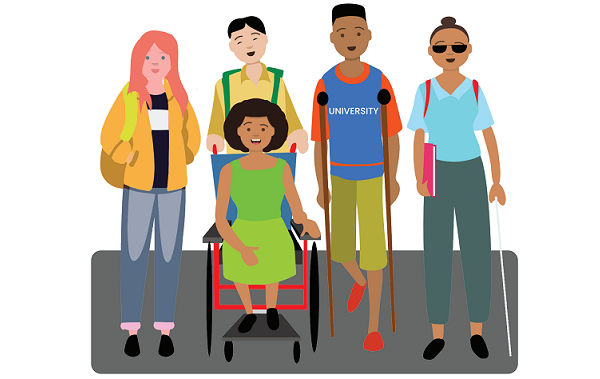Let’s include
December 19th, 2022
Imagine you are a teacher, and you have 60 children in your classroom. Of those 60 children, you have two children who cannot see very well, and two children who cannot hear very well. So you see them struggling to learn and to get along with the other students, which also affects their academic performance. This is not because they are not capable of studying, but because they are struggling to cope in a learning environment that is not as accommodating as it should be.
What can you do to carry these four children along with you as you are teaching, to ensure that they learn as much as the other students? How do you make those four children feel included, not excluded, to feel part of the class? This situation seems to me to be quite a challenge; I would definitely like some guidance on how best to succeed.
The funny thing is that I am now writing an e-course for teachers on that subject! We are designing an e-course for Light for The World, which is a non-profit organization working in Uganda which is promoting education for all and helping to promote the voices of people with disabilities and those from other under-represented communities.
I am not an expert on the topic of disability and inclusion in education. My task is to digitize the content I receive from experts in that field. In this way, I’m learning a lot about the subject.
I have realized that I had never really paid much attention to what people with a disability have to go through, especially when they are studying at school. In the past, I used to just ignore or avoid them because I felt uncomfortable facing their disability. I now realise that when I met someone with a disability, I mainly saw the disability, not the actual person. But people with disabilities go to school, follow successful careers, get married, have families, pay taxes, and dream just like everyone else!
Working on this course has convinced me that the key to shaping positive attitudes and perceptions towards people who are living with disability means we have to use appropriate language, avoid thinking in negative stereotypes and always show respect. Back when I was in high school, my friends and I made fun of a classmate who had lost a leg in an accident. We didn’t let him join our football team because we were afraid, he would let us down. Then, one day, we asked him to be the goalkeeper, and I was really surprised at how well he performed despite his disability. That made me feel ashamed. I felt bad seeing how much a person with a disability can accomplish if they are just given the chance.
Another eye-opener for me was the concept of ‘reasonable accommodation’. The United Nations Convention on the Rights of Persons with Disabilities (CRPD, 2006) says that all organizations and people should try to practice reasonable accommodation where we adapt or change a system or our actions, so that it is fair, and everyone can perform to the best of their ability. I wonder if this means that, within reasonable limits, we should make our e-courses ‘do-able’ by people with hearing or sight problems. But then, we need to be clear what ‘reasonable limits’ are. Maybe I should bring that up in our next team meeting!
I’m pretty sure that once the Three Mountains e-course is ready, that you will also be excited and ready to learn more about disability and inclusion. If so, and especially if you are living with a disability yourself, please let us know if you would like to help review the course for us before it is released to the public. Why not go to our website and sign up as a reviewer!
Hesron Byiringiro

